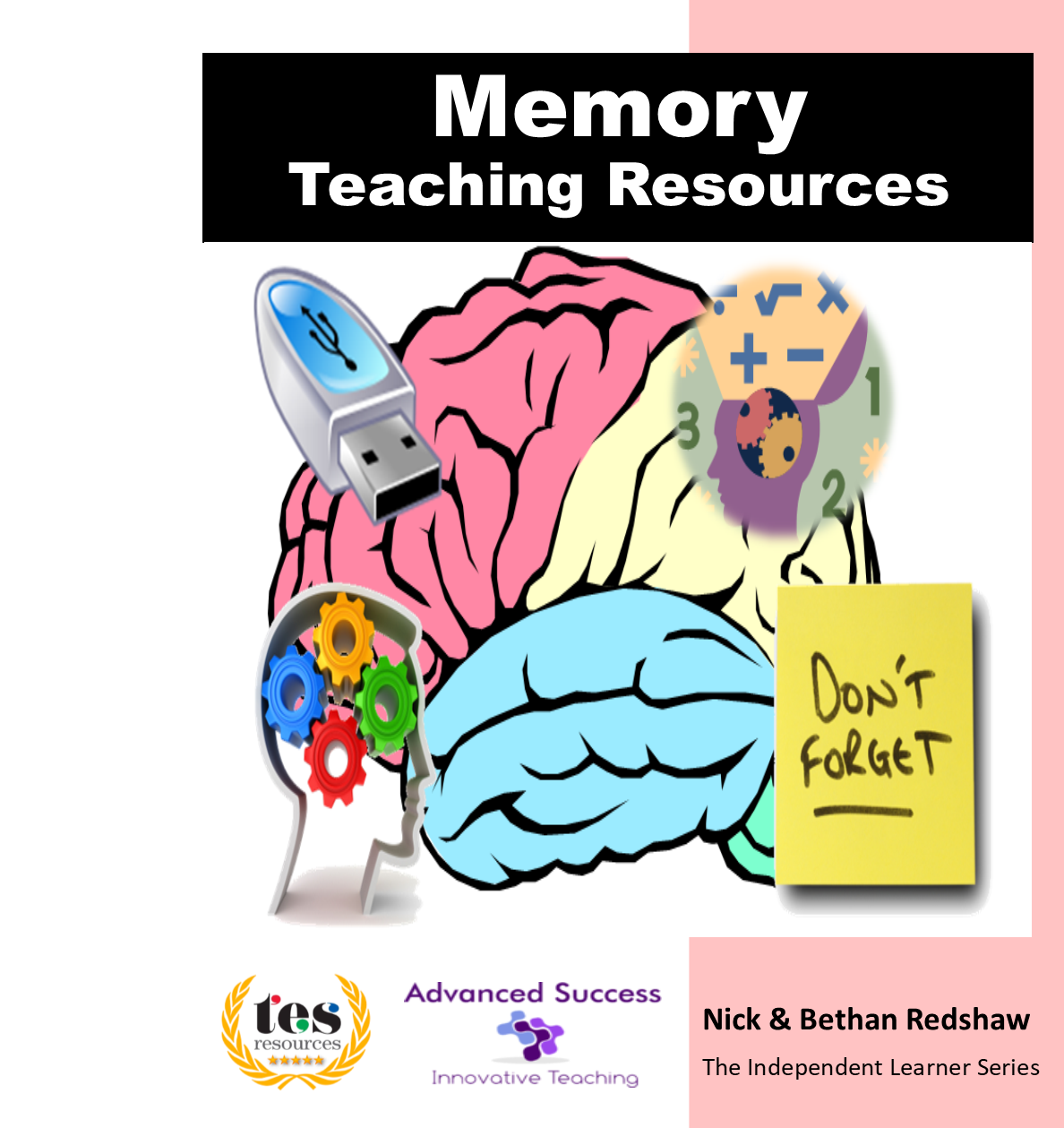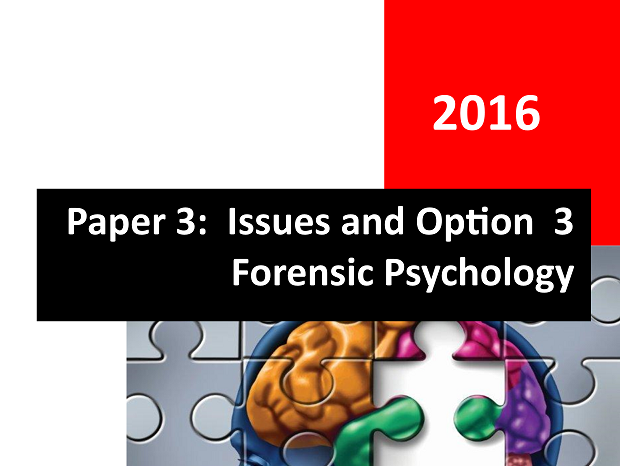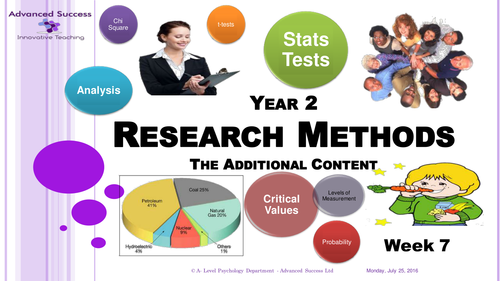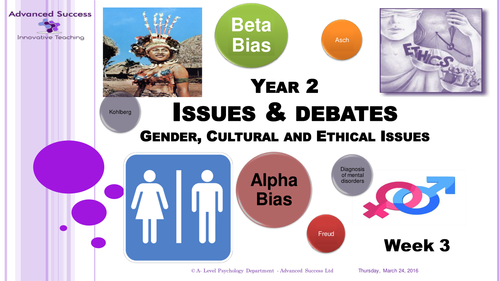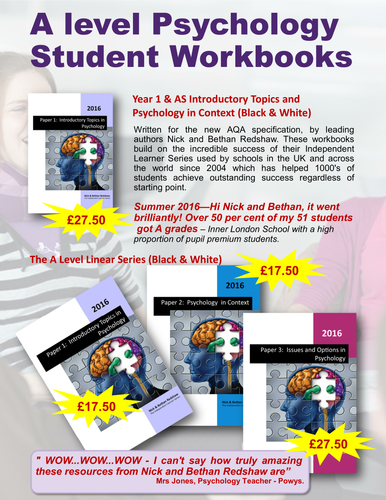Nick & Bethan Redshaw's A-Level Psychology Resources
Nick and Bethan are co-authors of the highly successful independent learner series of student workbooks and have been teaching A level Psychology since 1999 and involved in Examining for over 15 years.

